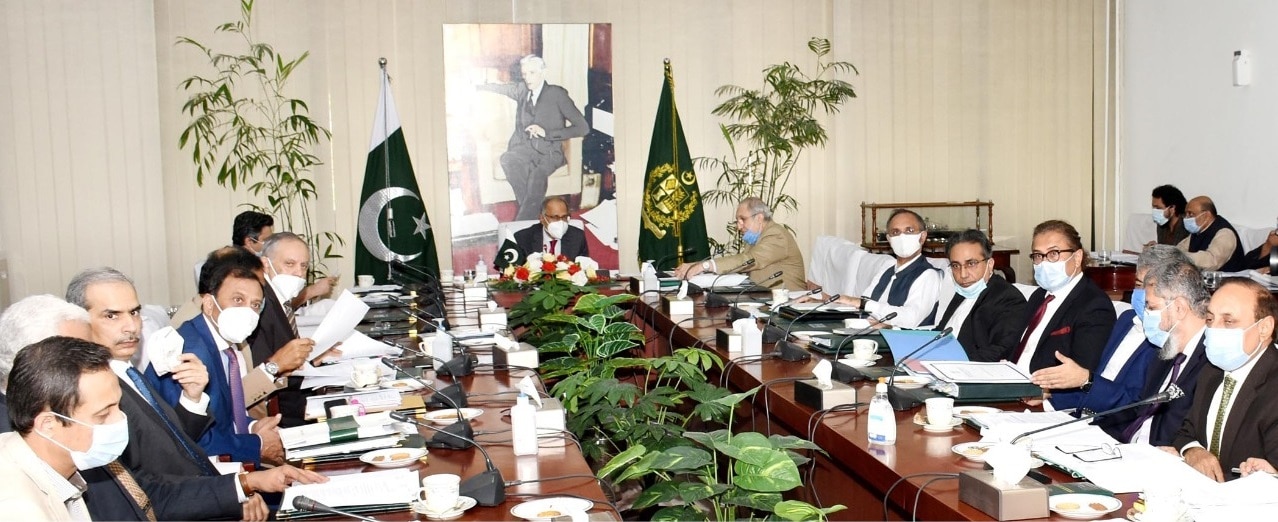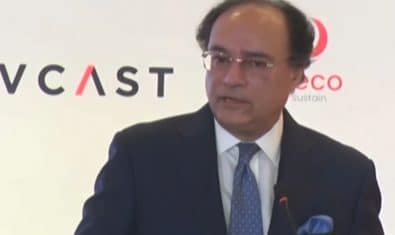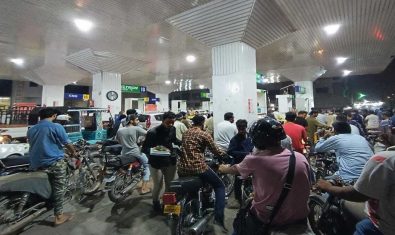In order to increase the share of manmade fibers (MMF) in the textile goods for better unit prices in the international markets, product diversification, and value addition, the Economic Coordination Committee (ECC) has decided to abolish Regulatory Duty (RD) and Additional Customs Duty (ADC) on selected harmonized system (HS) codes of the textile sector including fibers, yarns and fabrics of Nylon, Viscose, Acrylic, Rayon, Silk, Wool and vegetable-based fibers like Hemp etc.
It is to be noted that polyester yarn, which is a major item of the textile sector has not been granted exemption from the said duties.
Adviser to the Prime Minister on Finance and Revenue Abdul Hafeez Shaikh chaired the meeting of the Economic Coordination Committee (ECC) of the Cabinet here at the Cabinet Division. The summary was moved by the Ministry of Commerce, after approval of the National Tariff Policy Board in its meeting held on August 24, 2020.
This decision has come in pursuance of the policy of the Ministry of Commerce for cost reduction by reducing the duties, including ACDs and RDs, on raw materials as well as intermediaries. This is also an essential part of promoting industrialization under ‘Make in Pakistan’, and ensuring ‘export led growth’ in the country.
Under the review exercise being conducted at MOC, as per the three-year Tariff Rationalization Plan, the National Tariff Commission has initiated studies of different sectors including textile sector. During the analysis, it was observed that textile sector in Pakistan is using 70% Cotton and 30% MMF in manufacturing of textile goods, which is opposite to the general trend among the top exporting countries in textile sector.
This has a direct impact on the value addition, productivity and per-unit price of our textile products in the international markets. Therefore, after due consideration, as an initial step, tariffs have been revised for some of the items.
However, under the three-year plan, other sectors, including leather, engineering, pharmaceuticals, chemicals and food processing etc, are also being reviewed by the NTC, and tariffs will be rationalized accordingly. The local industry is expected to have a yearly benefit of Rs. 20 billion on the import of raw material and intermediate goods. The total revenue impact of these exemptions will be Rs. 533 million.
ECC considered and approved two technical supplementary grants (TSGs) for the Ministry of Interior amounting to Rs. 111 million for clearing various liabilities of the ICT administration. Two other TSGs were approved for Islamabad High Court (Rs. 102 million) and National Heritage & Culture Division (Rs. 85.01 million) for various expenditures.
ECC also granted that waiver of guarantee fee on foreign loans of K2/K3 projects. According to a report prepared by PAEC and EAD, there will be a benefit of Rs. 0.07/KWh to the general public by the waiver of this fee.
For the centralized procurement of the vaccines under the Expanded Program on Immunization (EPI), ECC approved the shifting of Federal EPI from development to revenue expenditure with an allocation of Rs. 9,903.195 million through TSG for vaccine procurement in CFY to avoid interruption in the immunization program.
Now the vaccine shall be procured by the Federal EPI on behalf of the provincial governments and later reimbursement shall be made by Punjab and Sindh government and deduction at source from the shares of KP and Balochistan for their respective vaccine shares will be made.
ECC allowed notifying the Kharlachi Border Crossing between Pakistan and Afghanistan as a rebatable border point for export of goods to Afghanistan. Earlier the opening of this border point helped in the release of congested transit trucks at the Afghan border due to Covid-19 restrictions.
ECC allowed the exemption from the re-lending of the funds for Pakistan National Emergency Preparedness and Response Plan for Covid-19 to cover the country’s requirements for 12 months through emergency operations. In order to administer the program Asian Development Bank shall provide a loan of $100 million and an additional $5 million will be from the government of Norway as a grant administered by ADB.
ADB has already signed a loan agreement with the Ministry of Economic Affairs to finance the said project.
ECC directs to ascertain the exact amount of liabilities payable by PSM
Two separate summaries were presented in the ECC today from the Ministry of Industries and Production for the disbursement of salaries of the employees of Pakistan Steel Mills and for clearing the liabilities of the retired employees of the Pakistan Steel Mills who have not approached the Court (Sindh High Court).
ECC approved an amount of Rs. 3,850 million due to the employees of PSM for the financial year 2020-21 to be disbursed every month. However, on the second summary, though the ECC agreed in principle that the dues to the retired non- litigant employees should be paid, the forum decided to seek a detailed report from the Ministry of Industries and Production on the nature of liabilities due to PSM on account of retirement dues, the liabilities that will accrue as a result of the retrenchment plan and other expenditures on account of utilities or any other charges due on PSM.
It is pertinent to mention that the forum was briefed that earlier this month the retired employees of the PSM were already paid Rs. 12.741 billion as retirement dues but the Court has asked to pay the non-litigant retired employees as well that will further add Rs.11.68 billion to the expenditure of the Federal government.


























